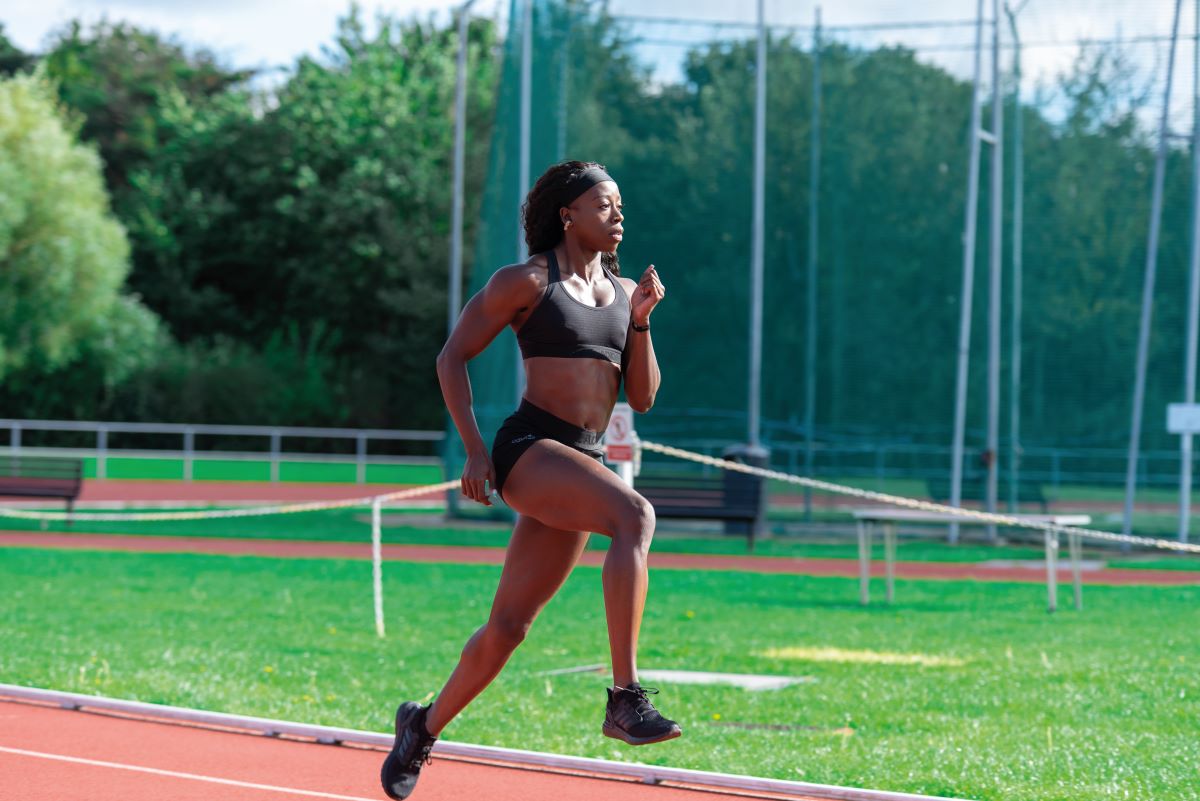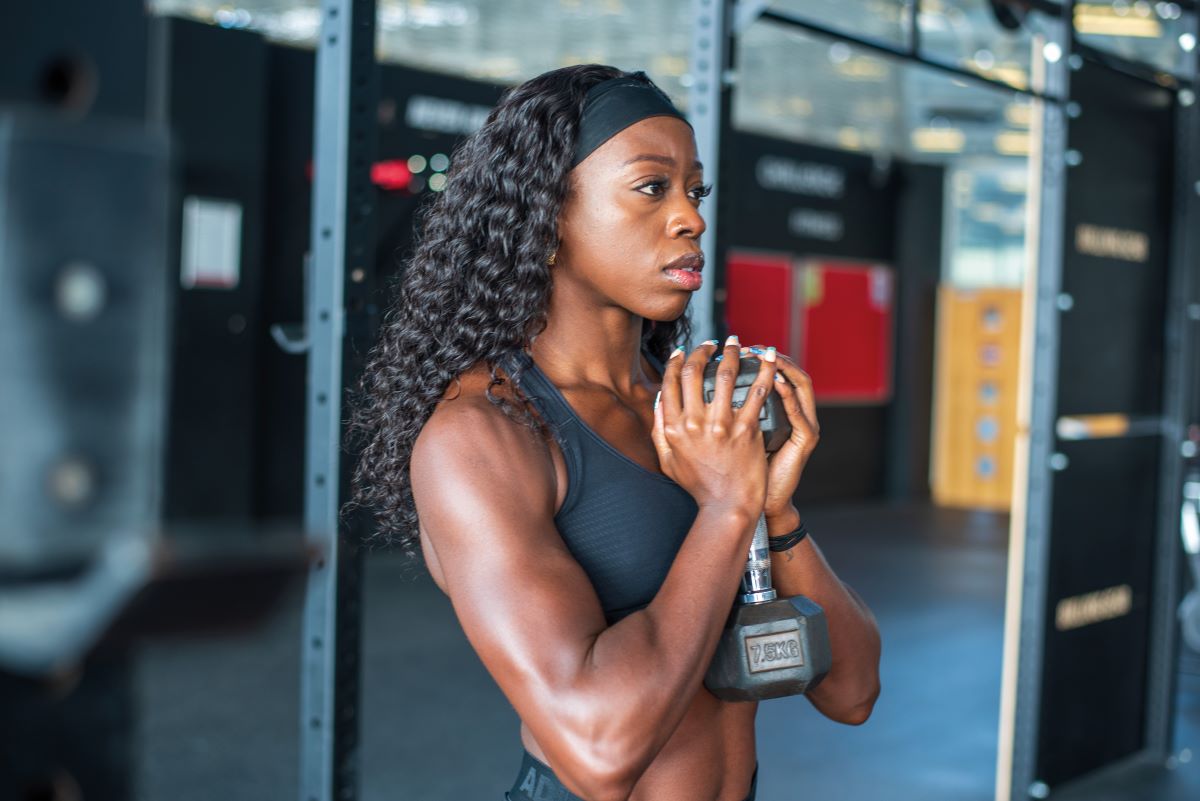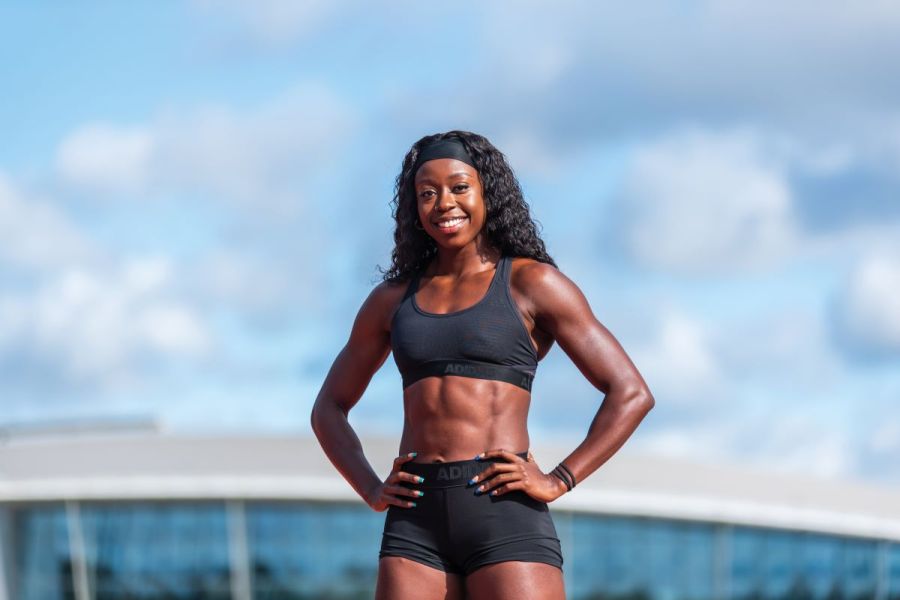One of the fastest female athletes in British history, sprinter Desirèe Henry competes in the 100m and 200m. She won an Olympic bronze medal in the 4 x 100m relay at the 2016 Rio Games and a silver medal in the 4 x 100m relay at the 2017 World Athletics Championships. Here, she shares her training secrets…
Desirèe Henry on cardio training as a sprinter
‘It’s a busy year for athletics, with the Commonwealth Games, European Championships and World Championships coming up. Right now, I’m training five-to-six days a week for between four-to-six hours, depending on whether or not they’re double-session days. During winter, the focus was on building a strong cardio base to build from. Now, as we transition into summer, the distance or duration of my runs is being cut down.
‘You always need to go a little further in training than the actual distance you compete in, just to build strength and speed, so my runs for the 100m involve 150m and 200m runs, and I do 250m and 300m runs in preparation for the 200m. I have about five running sessions a week – some of them are tempo runs, where the focus is on maintaining technique; some are plyometric sessions where the focus is on explosive movement like jumping over hurdles or onto a springy mat, and others are explosive speed sessions, where you’re working on the first 5, 10 or 15m of your run.
‘Other days involve ‘flying runs’, where we look at my optimum speed during the middle 40-to-70m section of my run. We break down every part of a sprint race and put it all together. The more you practice, the greater confidence you have that everything will come together in competition.’

The importance of strength training for sprinters
‘Sprinting is a power event, but I have to be able to control my strength and power to get out of the start blocks, get up and running, and use it for optimum performance.
‘I do 3 x 90-minute strength sessions a week, and while the focus was on building a baseline of strength over winter by lifting exceptionally heavy weights, the focus is now on getting those same big, strong muscles to move really fast with explosive moves like hang cleans, Olympic snatches and weighted squats at a fast pace. Eventually, we remove the weight so I’m able to perform at a very fast, powerful level.’
Desirèe Henry on nutrition and recovery
‘Food is a real game-changer. I’ve done experiments on myself to compare how I feel when I’m eating healthily verses eating unhealthily and, as much as I may look physically fit, internally, I can tell a major difference.
‘I want that feel-good feeling all of the time, which is why, given the work and the intensity I’m doing, I fuel my body with a high- protein/low-carb diet with lots of fruit and vegetables. I’ll always stick by eating healthily, but I am also human when it comes to cravings and sweet treats. I believe in moderation.’
‘Sleep is so important. When I’m pushing my body to the limit almost every single day, I need to be able to switch off when it’s time for bed at 10pm. Unfortunately, my central nervous system can still be very much awake, so I’ve been taking Solgar Chelated Magnesium Tablets [£13.75 for 100] since 2016. I take two a few hours before bed to start the process of winding down and it naturally calms me, so I’m able to rest, recover and feel refreshed when I wake up at 7.45am. If I can’t sleep, there are problems for everyone!’
Desirèe Henry: ‘I’ll always stick by eating healthily, but I am also human when it comes to cravings and sweet treats. I believe in moderation.’
‘I’m a regimented person and I feel that taking my vitamins first thing in the morning is the perfect way to ensure that I’m making that “little big difference”. I eat right and train right, but taking vitamins is my way of making sure I’m not deficient in anything or low on energy, especially as a woman.
‘Solgar’s Gentle Iron Tablets (£12.50 for 90) are my number one go-to as they help to reduce tiredness and fatigue, and they keep my iron levels topped up when I’m menstruating or can’t get enough iron through my diet.’

Desirèe Henry’s greatest achievement
‘My greatest achievement is being able to speak out and ask for help when I need it. It’s so easy to pretend you’re okay and you’ve got everything figured out, but I’m at the stage where I don’t want to pretend anymore. These days, I open up to my family and friends much more than I used to, and I feel that’s something to celebrate.
‘You don’t have to keep the burden to yourself, and it’s also okay to acknowledge you might need help in other ways, which is why I go to therapy. Seeking professional help takes strength and courage, and I’m proud of myself for doing that. I’m in a very positive place right now.’
Desirèe Henry is an ambassador for Solgar Vitamins. Find out more at solgar.co.uk.
Words: Joanna Ebsworth | Images: Solgar







